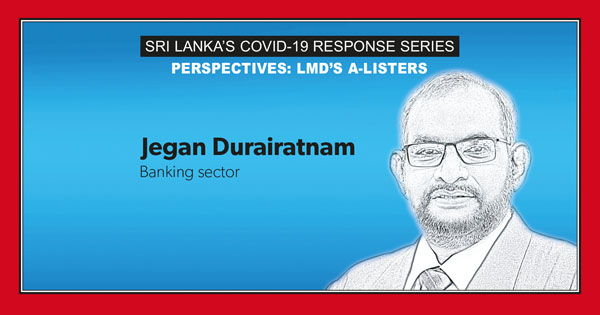OPPORTUNITY TO INSTIGATE REFORMS
A: The apparel and tourism industries will be extremely hard hit. Almost all consumer and B2B facing export businesses will feel the pinch until the US and Western Europe open up. Thus, employment and wages will be compromised. So will export earnings. Those employed overseas – particularly in low level jobs – may wish to return. This will add to unemployment and lead to a drop in remittances.
Since businesses won’t look to expand, FDI will also likely decline. Meanwhile, our debt obligations remain. With employment and remuneration compromised, local demand will also ease. So we have the perfect economic storm; a decline in forex inflows, higher unemployment, lower demand within the country leading to lower government revenue and debt obligations to service.
And unfortunately, due to our chronic twin deficits, we don’t have the fiscal space and reserves for a meaningful economic stimulus.
Q: So what’s the way forward?
A: Fortunately, tea prices are strong and oil prices are down. These are two positives we need to leverage to our advantage in the short term. Moving beyond this, we must look at both a short-term stimulus and medium-term response.
In the short term, we must safeguard the underprivileged; close to two million of those employed are daily wage earners and their incomes would have dried up during the curfew. How they survived is anyone’s guess. We must also keep demand and employment up.
We can address these three challenges via two broad initiatives; one, put money directly in the hands of those in need and two, a wage subsidy for sectors directly affected by the crisis (apparel, tourism, SME etc.). Further, businesses will require working capital support. For SMEs, we will need to go deeper and look at options such as credit guarantee schemes. Whilst the Central Bank has stepped in with support via banks and NBFIs, the financial services sector must not be asked to do the heavy lifting since it will weaken too.
There is also a need to retrain those who face job losses.
However, an essential precursor to all of the above is fast tracked investment in the healthcare system (to ramp up testing, ventilators, ICU beds etc.) and the public transport system (e.g. for adequate physical distancing, we need many more buses). These investments are critical to get the country back to work.
These initiatives are likely to cost three to four percent of GDP, if not more. As for sources of funds, there are a few.
Firstly, the Central Bank must purchase government bonds. This has already been done but should continue. With demand being low, this is unlikely to cause inflationary pressures. Secondly, we must borrow from official sources such as the IMF (after all, they were formed to deal with crises of this nature and have rapid funding arrangements), and other multilaterals and friendly countries. Thirdly, we should seek moratoriums on loans due to official sources. Fourth, use a part of our reserves. These measures can be used to finance the cost of stimulus measures and ensure liquidity in the system. Finally, we must attract businesses that wish to diversify their manufacturing out of China.
This crisis is an opportunity to put our economy on the path to sustainable development. Thus in the medium term, we need to modernise agriculture with a focus on productivity and a strong internal supply chain system from farm gate to consumer. This will necessitate deep reforms including those relating to land. Second, radically reimagine ease of doing business; we need to get into the global top 20 within five years. This will lead to sizable investments both local and foreign. Third, broad base both our export basket and markets. Use FTAs for this purpose. Fourth, deep SOE reforms, including but not limited to JVs, listings and privatisation.
And finally, the post-COVID-19 world is likely to be full of new experiences. New business opportunities will emerge and we need to position our private sector to take advantage of them. If we’re among the first off the blocks, we could leapfrog our economy into a strong growth zone.
We are in for a rough ride in the short term; but we must use this crisis as an opportunity to push through reforms that will transform our country into a prosperous nation.






